On International Women’s Day: End daily ‘corrective rapes’
Colin Stewart is a 45-year journalism veteran living in Southern…
South Africa-native lesbian activist blogger Melanie Nathan appeals today for an end to the cruel and wrong-headed epidemic of “corrective rapes” by men who claim they are raping lesbians to turn them straight.
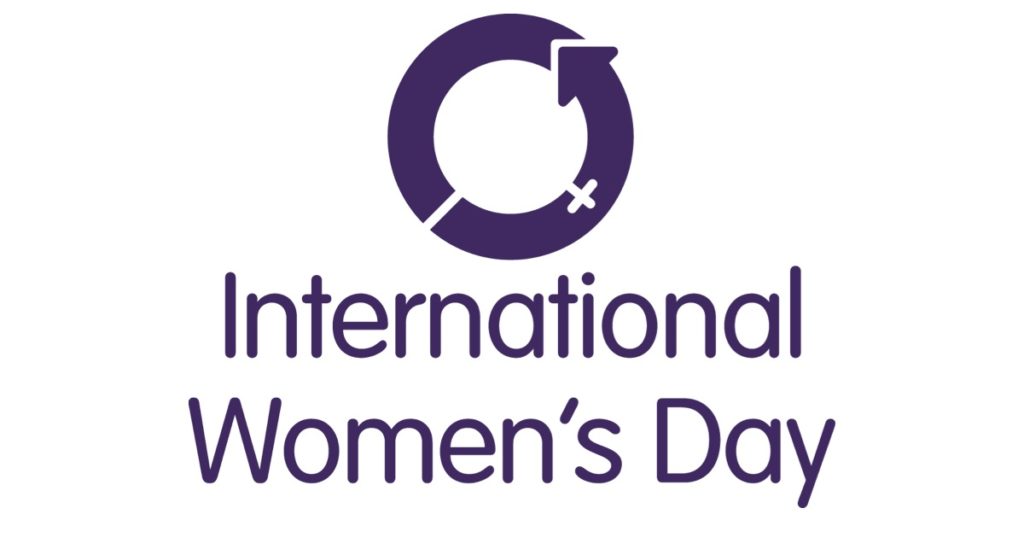
Currently based in San Francisco, Nathan is a lawyer, human rights advocate, and executive director of the African Human Rights Coalition. She is also the publisher of the Oblogdee advocacy blog.
The photos below, in addition to Nathan’s, honor a tiny sampling of the many women who are seeking justice in the world today.
Nathan writes:
Honoring Lesbian Survivors on International Women’s Day #IWD 2019
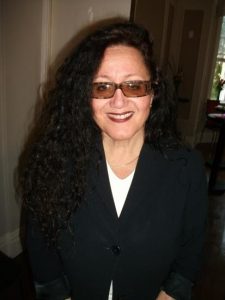
Today is International Women’s Day #IWD2019: We celebrate and stand in solidarity with all women, noting their tenacity and fortitude, especially those who courageously survive violence and defy patriarchy. At African HRC, with global lesbians and transgender women our family, we continue to fight for the basic human right to autonomy of mind and body.
By 2010 I has been living as an expat South African in the United States for over 20 years, still harboring a deep love and attachment for the land of my birth. I had started an advocacy blog, helmed by the fact that I was an out lesbian.
‘Corrective rape’
My blogging was gaining steam when I received a communication from a lesbian in a township in South Africa, describing the horrendous conditions for 14 lesbians, living in a flooded two room tin shack, all having survived horrendous rape under the guise of so called “corrective” rape. They were apparently considered lucky for surviving attacks where mostly women are murdered.
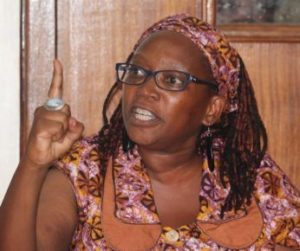
I had never heard the term “corrective rape” and when I heard the stories I was shocked to my core. The women had nothing. No food, no medical care and no trauma counselling. However they had the leadership of one women who had taken it upon herself to take the women in and start the fight to bring attention to this horrendous issue. We mustered donors and their conditions improved. I soon discovered other similar situations with other lesbians coming to the aide of their sisters.
Soon thereafter, Ndumie Fund, who had lost her own partner to AIDS contracted as a result of “corrective rape” asked me to publish a picture depicting the brutalized face of one of the young woman violently beaten during an attack. She had been strangled with barbed wire. Her screams had resulted in her rescue by neighbors and the perpetrator being caught in the act. I could barely look at the picture – it was so real and so awful. I declined to publish, noting it was simply not okay to publish something that graphic. Ndumie begged me. She said mainstream media would never do it – and the world needed to see the endemic hate against lesbians in South Africa.
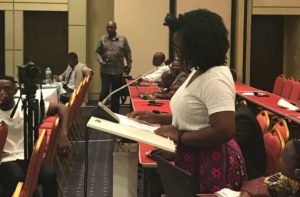
I published the picture. I wrote the story. I called it “The Face of Corrective Rape.” It went viral.
Thereafter I published several stories following the trajectory of that case and the unjust system, which failed to provide victim resources. The accused was back in the neighborhood on $6.00 bail. The survivor was forced to take the same bus as her perpetrator to attend the court case, and while he further threatened her, the only protection came in the form of the other survivors creating a circle around her.
The story received a huge amount of attention, especially in Europe and journalists from The Guardian, BBC called for interviews. One million global signatures landed on the desk of then Minister of Justice, Jeff Radebe. I wrote and published what we saw as critical reform for law and process. Ndumie and I were invited to Parliament, to present these reforms to a joint meeting of Justice Department, South African Police leadership and other stakeholders.
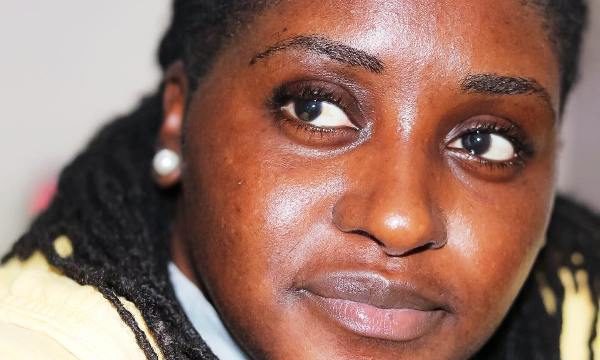
I flew to Cape Town, thanks to the sponsorship of Cape Town Pride and British Airways, and a week later we walked into Parliament under police guard, carrying the one million signatures. Groups of lesbians who had been raped stood courageously outside Parliament that day with signs and taped mouths, heralding our entry through their protest, bringing added visibility to the issue. At that meeting we established a Task Team charged with taking these suggested reforms to the next level. The rest is a long story, with dramatic improvement, and the work ongoing.
The new South African democracy has a constitution that specifically protects LGBTQI people. Through the surrounding homophobia the SA government is willing to listen. However 30 other countries in Africa consider LGBTQI people to be criminals by virtue of their sexuality, with punitive measures akin to those meted out to robbers, rapists and murderers.
Places you never hear about
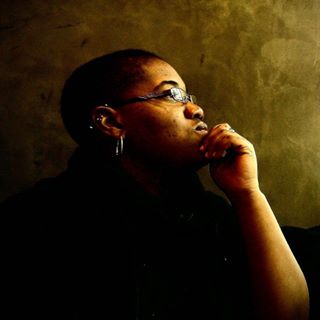
That brings me to the rest of Africa: Those places you never hear about, yet here at African Human Rights Coalition we know through endless direct reports, that lesbians are being raped daily, under the insidious excuse that they can be “cured.” We have seen cases where women are raped by uncles, by police, by so called friends, by someone the family has invited into the home, with ongoing unimaginable hell and torture.
Due to their criminalization and the fact that in all those countries between 88-98% of the populace believe same-sex attraction is an abomination, there is simply nowhere to turn for safety and justice. Many of these young women find their own way out and many are stuck. At African HRC we provide options to help women escape these situations and receive the resources they need. Many are now refugees in other African countries which are “hostile hosts” to LGBTQI refugees. We advocate, provide humanitarian resources and are seeking durable solutions.
In the last few months I have provided several expert testimony Country Conditions Affidavits for cases of lesbians who have made their way to the U.S.A. and EU seeking asylum.
Just last week a 23 year-old lesbian with a 4th grade education, no Spanish and little English, who had been so called “correctively” raped for years by a family member, made her way from Ethiopia to Brazil, and then all the way up through the continents to the Southern U.S. border, where after asking for asylum was held in detention for months, and finally granted asylum. In preparing my report to provide testimony for her case, I kept reflecting on her youth and her courage – and the extraordinary journey to seek safety and freedom. I thought about the fact that her arrival and the arrival of the two lesbians, from Kenya and Uganda, whose reports I have concluded this past week, represent a mere tip of the iceberg. How are we going to deal with this? The work ahead is unfathomable – but we cannot let that stop us.
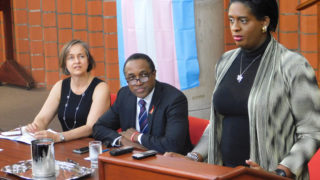
And so while we celebrate and stand in solidarity with all women, noting their tenacity and fortitude, especially those who courageously survive violence and defy patriarchy, we ask for your help to support our work, through forwarding, awareness, invitations to speak, your continued pro bono work, funding and donations.
At African HRC with global lesbians and transgender women our family, we continue to fight for the basic human right to autonomy of mind and body.
Tax deductible donations to African HRC can be made HERE.
Many thanks, and
Aluta Continua,
Melanie




